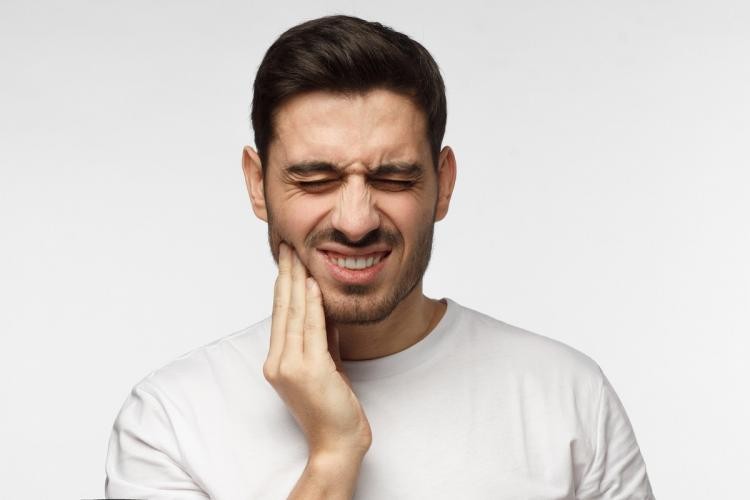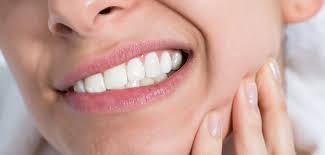Teeth grinding, also known as bruxism, is a common yet often overlooked condition that affects millions of people. Whether it’s occurring during the day or at night, bruxism can cause significant dental and health issues if left untreated. In this blog, we will explore how bruxism treatment can help alleviate the symptoms of this condition, as well as the role of dentists in diagnosing and managing it.
What is Bruxism?
Bruxism refers to the involuntary grinding, clenching, or gnashing of teeth. It can happen during sleep (sleep bruxism) or while awake (awake bruxism). While everyone occasionally grinds their teeth, persistent bruxism can lead to various complications, including tooth wear, jaw pain, headaches, and even damaged dental work.
Common Symptoms of Bruxism
- Teeth that are worn down or chipped
- Jaw pain or stiffness
- Frequent headaches, especially in the morning
- Tight or sore muscles in the face and neck
- Insomnia or poor-quality sleep
How Do Dentists Diagnose Bruxism?
Diagnosing bruxism often involves a combination of reviewing your symptoms, conducting a physical examination, and assessing any damage to your teeth. Here’s how dentists approach the diagnosis:
- Patient History
Your dentist will ask about your symptoms, such as whether you’ve experienced jaw pain, headaches, or worn-down teeth. They may also inquire about stress levels, sleep habits, and any habits that could contribute to bruxism, like caffeine consumption or alcohol use. - Physical Examination
During a dental exam, the dentist will check for visible signs of teeth grinding, such as enamel wear, cracked teeth, or gum recession. They will also assess the muscles and joints around the jaw to check for tenderness or clicking, which can indicate jaw problems caused by bruxism. - Dental X-Rays
In some cases, the dentist may take X-rays to examine the extent of tooth damage or identify any structural issues in the jaw. - Assessment of Sleep Patterns
For patients suspected of having sleep bruxism, the dentist might recommend a sleep study or refer you to a sleep specialist to rule out underlying sleep disorders.
How Do Dentists Treat Bruxism?
Once bruxism is diagnosed, your dentist will work with you to determine the most appropriate treatment plan. Here are some common options for bruxism treatment:
1. Occlusal Splints (Mouth Guards)
One of the most common treatments for bruxism is the use of occlusal splints, also known as mouth guards. These custom-made devices are designed to fit over your teeth and provide a barrier between the upper and lower teeth. They help to absorb the force of grinding and prevent damage to the teeth.
Benefits of Occlusal Splints
- Prevent tooth wear and damage
- Relieve jaw muscle tension
- Reduce the impact of grinding on your teeth
- Minimise tooth sensitivity
Occlusal splints can be worn during the night or, in some cases, during the day if necessary.
2. Jaw Pain Management
If bruxism is causing jaw pain, there are several ways dentists manage this symptom:
- Massage Therapy: Dentists may recommend gentle jaw exercises or massage to relieve muscle tension.
- Heat or Cold Compresses: Applying heat or cold to the jaw area can reduce inflammation and ease pain.
- Medication: Over-the-counter pain relievers or muscle relaxants may be prescribed to alleviate muscle spasms and discomfort.
- Physical Therapy: In cases of severe jaw pain, physical therapy can help improve jaw function and reduce discomfort.
By addressing jaw pain, dentists aim to provide relief and prevent long-term damage to the jaw joint and muscles.
3. Stress Management and Lifestyle Changes
Because stress is a common trigger for bruxism, dentists may recommend stress-reduction techniques, such as:
- Relaxation Exercises: Techniques such as deep breathing or mindfulness can help reduce stress levels, which in turn can reduce grinding episodes.
- Cognitive Behavioural Therapy (CBT): CBT can help you manage anxiety or stress that might be contributing to bruxism.
- Sleep Hygiene: Good sleep practices, like maintaining a regular sleep schedule and avoiding stimulants before bed, can help reduce night-time grinding.
4. Correcting Bite Issues
If your bruxism is linked to misaligned teeth or bite issues, your dentist may recommend orthodontic treatments or dental restorations. This could involve:
- Braces or Aligners: These can correct misalignments that contribute to grinding.
- Dental Crowns or Veneers: These can restore damaged teeth caused by grinding and improve the overall function of your bite.
Correcting bite issues helps to alleviate pressure on the jaw and reduce the urge to grind.
Preventing Bruxism and Protecting Your Teeth
While treatment can be highly effective, it’s also important to take steps to prevent bruxism from occurring in the first place or reduce its frequency.
- Practice Relaxation Before Bed
Wind down with calming activities like reading, taking a warm bath, or practising relaxation techniques to reduce the chances of grinding at night. - Limit Stimulants
Avoid caffeine and alcohol in the evening, as these can increase muscle tension and trigger bruxism. - Avoid Chewing Non-Food Items
Refrain from chewing on pens, pencils, or ice, as these habits can exacerbate teeth grinding. - Maintain a Regular Sleep Schedule
Quality sleep can reduce the likelihood of bruxism during the night. Make sure to get enough rest and maintain a consistent sleep routine.
Bruxism can be a painful and damaging condition, but with proper diagnosis and treatment, it can be managed effectively. Whether you’re experiencing jaw pain, tooth wear, or headaches due to teeth grinding, there are several options available, from occlusal splints to stress management techniques, that can provide relief and prevent long-term damage.
If you suspect you may be grinding your teeth, don’t wait to seek help. Consulting with your dentist for bruxism treatment can help protect your teeth and improve your overall quality of life.





